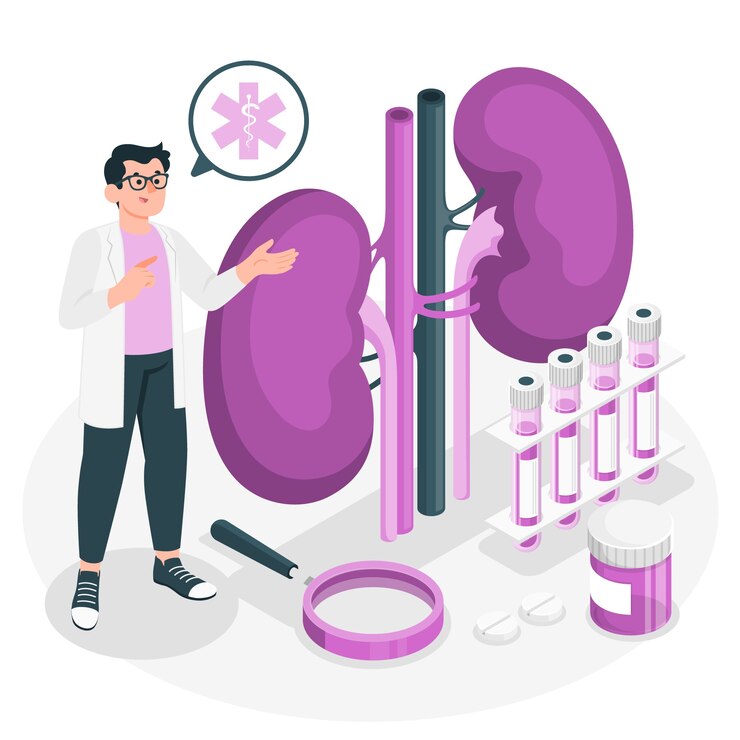Kidney Transplant Complications and How to Manage Them

A kidney transplant can bring new hope and improved quality of life to individuals with chronic kidney disease, but it also introduces potential complications. From rejection to infection, being aware of these risks can empower patients to manage them effectively with the right care and lifestyle adjustments. Here, we’ll explore the most common kidney transplant complications and provide strategies for managing each one.
1. Organ Rejection
- Types of Rejection: Organ rejection occurs when the immune system recognizes the transplanted kidney as foreign and attacks it. This can happen within days (acute rejection) or years after the transplant (chronic rejection).
- Symptoms: Common signs include fever, decreased urine output, fatigue, and pain around the transplant area.
- Management: Immunosuppressant medications are essential for preventing rejection. Patients should follow their prescribed medication regimen closely, attend all follow-up appointments, and promptly report any unusual symptoms to their healthcare team.
2. Infections
- Increased Risk: Immunosuppressive drugs used to prevent organ rejection also reduce the body’s ability to fight infections, making transplant recipients more susceptible.
- Common Infections: Recipients may be at higher risk for bacterial, viral, and fungal infections, especially respiratory and urinary tract infections.
- Management: Practicing good hygiene, avoiding large crowds, and following a vaccination schedule recommended by a healthcare provider can help reduce infection risks. Additionally, promptly seeking medical attention at the first sign of infection is essential.
3. High Blood Pressure and Cardiovascular Issues
- Cause: Immunosuppressive medications can raise blood pressure and cholesterol levels, increasing the risk of heart disease.
- Management: Regular blood pressure monitoring, maintaining a healthy diet, exercising, and following prescribed medication regimens are crucial for managing blood pressure and cardiovascular health. If needed, doctors may prescribe additional medications to control blood pressure and cholesterol levels.
4. Diabetes
- Risk Factors: Some immunosuppressive drugs can increase blood sugar levels, which can lead to diabetes, especially in patients with existing risk factors.
- Management: Monitoring blood glucose levels, eating a balanced diet low in refined sugars, and exercising can help manage blood sugar. For some, medications or insulin therapy may be necessary, depending on individual needs and response to treatment.
5. Cancer Risk
- Higher Susceptibility: Transplant recipients have a higher risk of certain cancers, including skin cancer and lymphoma, due to the immune-suppressing effects of their medications.
- Management: Regular screenings, avoiding direct sun exposure, and using sunscreen can reduce the risk of skin cancer. Additionally, staying up-to-date with screenings for other cancers and reporting any unusual symptoms early can aid in early detection and treatment.
6. Bone Health Issues
- Bone Weakening: Long-term use of immunosuppressants may lead to bone thinning (osteoporosis) or bone pain, increasing the risk of fractures.
- Management: A diet rich in calcium and vitamin D, along with weight-bearing exercises, can help maintain bone strength. Supplements or medications may also be prescribed if bone density loss is detected.
7. Gastrointestinal Complications
- Symptoms: Nausea, vomiting, diarrhea, or other digestive issues can occur due to immunosuppressant drugs.
- Management: Eating smaller, frequent meals, avoiding irritating foods, and discussing potential medication adjustments with a doctor can help manage these symptoms. In some cases, medications to control nausea or other symptoms may be beneficial.
Conclusion
Managing kidney transplant complications involves a combination of medical treatments, lifestyle adjustments, and consistent monitoring. By working closely with a healthcare team, staying vigilant for symptoms, and following a healthy lifestyle, transplant recipients can reduce the impact of these complications and improve their overall health.


Leave a Reply